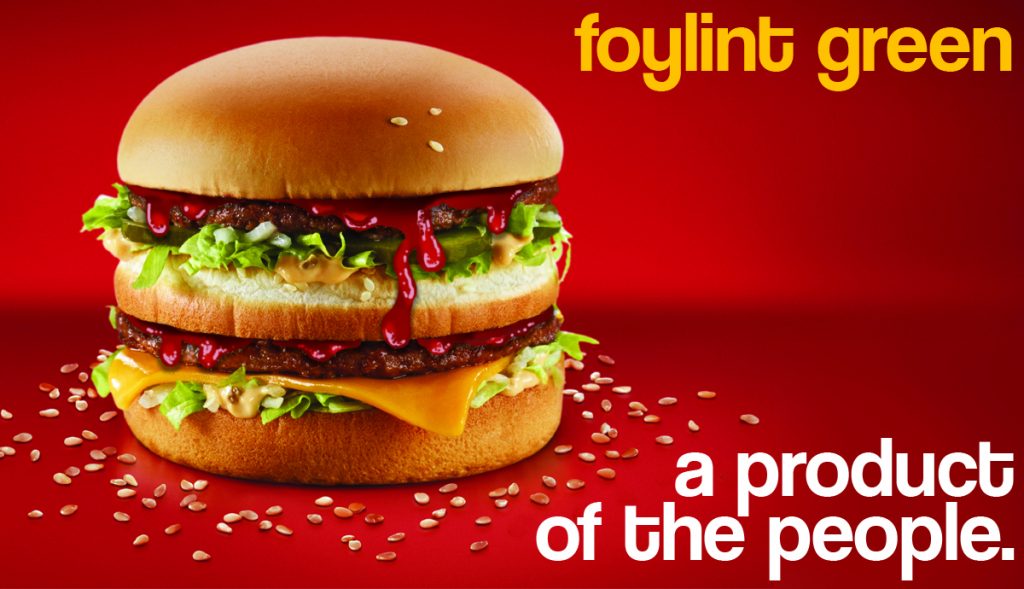
WINNIPEG, MB
In response to the ever-growing human population and the subsequent stress on the food production chain, McDonald’s has introduced a new product – the “100% Canadian” hamburger patty, dubbed “Foylint Green” by the company’s food science department.
“In our attempt to decrease our carbon footprint, we’ve begun to phase out beef in our burgers.
After all, cattle is one of the leading causes of climate change,” said Kobe Angus, McDonald’s chief food scientist, “so we’ve gone and replaced that wasteful protein with one that actually reduces the carbon emissions of Canada as a whole.”
Too good to be true? We probed Angus over this new mystery miracle meat replacement, and how its use directly reduced Canada’s negative impact on global warming.
“Well, uh, Foylint Green is a plant native to the banks of, uh, Lake Winnipeg. Grows year-round, we kinda just harvest them – it, I meant ‘it.’ It consumes a lot of energy, wasting it trying to stay warm or cool depending on the weather, or watching Netflix, or [inaudible] – I’ve said too much, this interview is over.”
The use of Foylint Green seems to be a cost-effective alternative to cattle. McDonald’s seems to be spending next to no money on the production of their new protein- rich foodstuff, with a careful analysis of their budget revealing that they spend only about a million dollars on its acquisition per year. Most of it is spent on employees described as “product wranglers,” and on miscellaneous supplies such as hundreds of kilograms of ketamine and what the accounting department can only describe as “not tranquilizer guns.” Curiously, though the product is described by the company as a “soy/lichen/ficus- thingy,” McDonald’s is spending as much on slaughterhouses this year as they have in previous years.
Suspicions have rightly arisen among consumers, particularly in regards to the figures on slaughterhouse expenditure.
“McDonald’s has done a truly horrible thing here. They promised what seemed to be a vegan, cruelty-free product, but it obviously contains some kind of flesh. I knew it was too good to be true; Foylint Green is…” said
Todd Neckbeard, that insufferable guy rambling on the corner of College and Spadina who you always tune out before he gets to his point.
“Despite the criticism, Foylint Green is popular with every demographic,” say {insert name]. “Despite some misguided tinfoil- hat controversy, one thing is for sure: it’s a real product of the people.”



